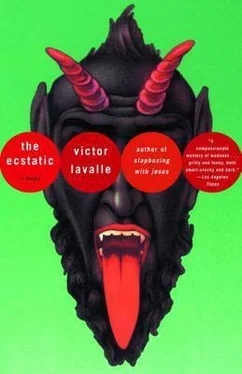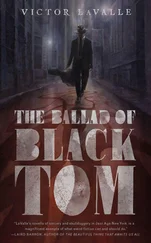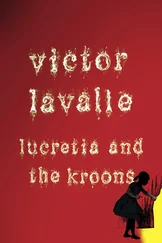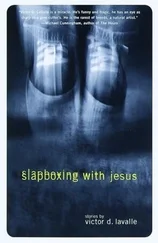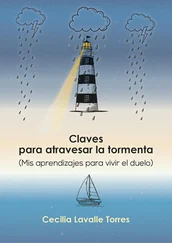Yours,
Anthony
I signed only my first name, but put the full return address at the top. Of course I wanted a response; that’s why I wrote it. Short, quick and sure to sting. Cracked my toes and set my feet flat to enjoy the cold store floor through my thin socks.
After resting I looked at the clock, but the time was wrong. — It’s three? I asked myself.
— It took me two hours to do this little bit?
Which made me think of the work I’d done in the conference room. I lay the sheets on my table in the coffee shop. Read the movie entries so quickly that I had time to do it again. Read them out loud. If I compare the feeling with anything it would be to my mother when she was listening to the tapes of our family speaking into a microphone. Both were just a form of preservation.
I touched the pages gently to my fingertips and considered the next month, the next year. They were in my lousy handwriting; that made them more cherishable. I needed to think impartially about my family and myself. Where the others had been stricken, how would I survive. The first time my mother didn’t recognize me I remember I was ten. It lasted a week and the whole time she was trapped on a hospital bed. When Uncle Isaac refused to go to sleep for so many days that he only got rest when he fainted.
In a way it was good luck that I’d sat there so long feeling sorry for myself. If I hadn’t I might have put on my shoes and walked out of the coffee store. If I walked out I might have left Piccadilly Road. And if I left Piccadilly Road I wouldn’t have seen Nabisase and Grandma running away.
They had fashioned a papoose like the one we’d made with my jacket the night before. Theirs was made of bed sheets. My sister carried Grandma on her back. A thirteen-year-old girl tottering down the road holding her ninety-three-year-old grandmother in a satchel.
They went down Piccadilly, past where I could see them from my chair, so I put on my shoes, left four dollars on the register and one dollar in the tip cup. Followed them with my eyes until they reached a big library two blocks down. My sister made a right.
I walked to Braddock Street, where Nabisase had gone. On the corner there was a marble library too flamboyant for this modest town; a man wearing crisp, new overall dungarees and a nice white long-sleeved shirt washed scuff marks off the fronts steps. He looked spiffier than I did and I was wearing my brown suit.
Judging by numbers the town’s missing populace was all on Braddock Street. Though it was a crowd they seemed to take up less space than the same number of people would in New York. Eventually I realized this was because no one was dramatically announcing their hurry with sighs or pushing.
Three circus tents were pitched in the road; each was as tall as the surrounding two-story homes. They were staggered, one tent after the next, and swaying to the right or left depending on the impulse of the wind.
That first tent had teenage girls inside. I saw a few walk in, but not my sister.
Yellow balloons were tied to sedentary objects. To light posts, to trees, car antennas and front gates. A boy in a wheelchair had five tied to his handlebars. This old woman, sitting in a lawn chair on the sidewalk, wore balloons looped around each ear. Her jewelry bobbing up above her hair.
A traveling band was at the far end of the block and when they reached the corner of Braddock, at Louden, turned right to make a circuit through the downtown area. It was brassy music except for one bass drum.
People wandered down the block, mixing around the three tents. Middle-aged women stood together in U-shaped groups, each one’s children visible constantly this way.
Christianity was common. I bet my sister was pretending she fit right in. I watched as a minister and two preachers were greeted sweetly; each one mingling on his own. Old women that I passed sang absently of Jesus.
There were black people and white, but I was confused by both. Being from New York, I was used to telling the difference between the two with only my sense of sound. It was just disconcerting to hear a man drawling sweetly with his wife and when I looked the guy was as likely to be blond as he was a brother. I was disoriented watching so many people act politely across the races. In New York there was no courtesy, only parallel worlds. We worked hard at ignoring each other. But down here black people and white people shook hands, greeted each other, and generally hid their mutual contempt.
Women sold meat they’d prepared at home from folding tables set on the sidewalk; pork and a lot of chicken. Besides the booths others walked around with Tupperware serving trays of Brown Betty’s, pumpkin pie and malapees (warm walnut cookies dipped in honey then powdered with brown sugar; the woman who sold them told me the recipe, belched and apologized many times). I bought ten for three dollars ate four and put the others in my jacket pocket. I needed the energy. Oh, shut up.
I tried to walk into the first tent with the teenage girls inside, but a small woman wouldn’t let me through. She smoked and checked her watch. Since she was shorter than me I looked in, but that was no way to find Nabisase.
At least thirty girls were in there. A Polaroid flashed in the back, many many times.
— You go to the second tent and sit, said the woman in front of me, but I wasn’t listening.
— Nabisase! I yelled.
Maybe four of the girls looked at me, but the rest were too busy. About a third of the girls were in scuffed jeans and boring T-shirts. The rest wore long dresses and makeup. I assumed that I knew which ones were involved in this pageant, but found out later that I was wrong.
— You go to the second tent and sit, the woman said one last time, cigarette out of her mouth. She spoke firmly once her slab of husband had joined us.
I looked him up, down, all around, trying to decide if I should rush past him.
At the entrance of the second tent I ate two more malapees. Undid my jacket to straighten my ocher tie. A small boy was there holding a plastic jar, collecting money for another boy who’d been burned plenty. There was a picture taped to the jar. Talk about veal cutlets. I gave a dollar.
I wasn’t the only one going into the second tent and I sure hadn’t been the first. One hundred folding chairs were filled and many other people already stood along the sides of the tent. But it was still cool inside. Not only because it was November, but a pair of oscillating fans at the far end.
They were propped at both ends of a small elevated stage. In the foreground of the stage there was a standing microphone, but no speaker yet.
I tried to get out of the entranceway, but it was hard. Soon people would have to sneak up under the flaps of the tent, along the sides, if they were going to get a view. If they did who cared? There wasn’t any entry charge.
When a tiny Negro walked onto the stage I knew we had begun. I know the word ‘Negro’ doesn’t fit anymore, but he was transported in from a previous century. Dressed like a buggy driver in weathered tails and white spats. The man even wore a derby. If he’d been holding a tiny lantern he might have found work on many lawns.
He was as light as wheat, but obviously black, and half the people here knew him. A few called out when he appeared, — Hey Uncle! or, Yes now, Uncle!
The ones who yelled were the most enthusiastic. Four guys who stood and clapped.
No one else applauded, not the black or the white, the fat or the chubby. Other than his cheering quartet most people just casually watched.
The little man touched the microphone with his thumb so the first microphone broadcast was of a nail scratched across the equipment. The second was his voice, squeaky as a bee sting.
Читать дальше
